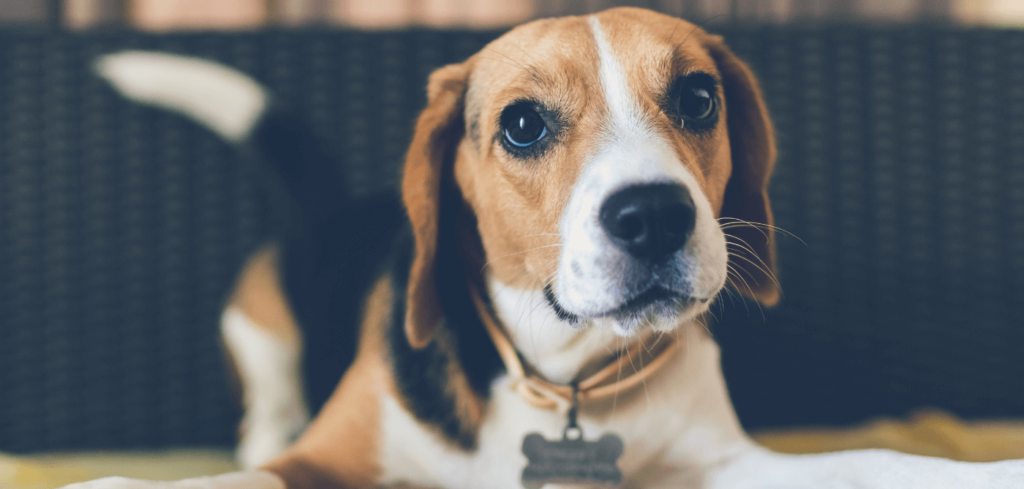
Most people I know love Provolone cheese, and I’m a big fan of it too…
It has a relatively mild flavor that goes great in a sandwich and with a number of other foods…
And it’s not surprising that many dogs are able to get their little paws on it…
But can dogs eat Provolone cheese?
Well, that’s actually a question that many people have, and in today’s article, we’re going to answer it by covering the following information…
- Can Dogs Eat Provolone Cheese?
- How Much Provolone Is Okay for Your Dog?
- Is Provolone Cheese Good For Dogs?
- Are Any Other Cheeses Good For Dogs?
- What Types of Cheese Are Harmful For Dogs?
- Are There Reasons To Avoid Giving Your Dog Any Cheese?
In the end, you’ll know if and when it’s appropriate for dogs to eat Provolone cheese…
Can Dogs Eat Provolone Cheese?
Yes. Provolone cheese is safe for dogs to eat. In fact, it contains proteins, fatty acids, and some essential vitamins, along with a high amount of calcium which will help promote your dog’s bone growth…
It’s also known for its low carbohydrate content, which in turn means it needs less lactose to break it down…
But all that being said, there are still some risks associated with feeding your dog Provolone…
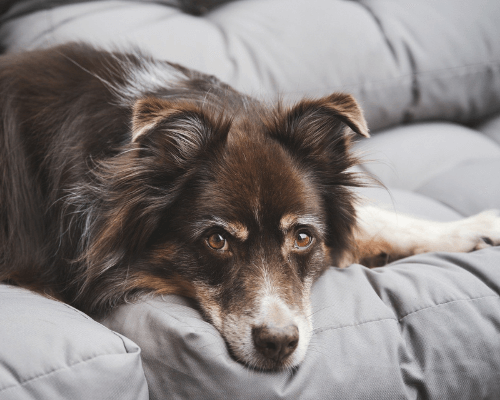
You see, even if the carbohydrate content is low, you never know if your dog’s digestive system will be able to handle it or not…
And if your dog is lactose-intolerant, Provolone cheese will upset your dog’s stomach just as most other types of cheese will…
There’s also the fact that the Provolone may have different flavors infused into it, and if it contains something like garlic, it’ll be outright toxic for your dog…
It’s always best to look out for any extra flavors or seasonings before feeding your dog Provolone or any other cheese for that matter…
And if you decide to try feeding some to your dog as a treat, start off with just a small piece at first and observe how your dog reacts to it…
If your dog has no problems after trying just a little piece, you can probably give him more, but remember to only give your four-legged friend cheese in moderation…
On the other hand, if your dog reacts with vomiting, diarrhea, or any other digestive symptoms, you’ll know to avoid Provolone in the future, and you should contact a vet immediately.
>> Click Here To Talk To A Verified Vet In Minutes (24/7)!
How Much Provolone Is Okay for Your Dog?
You should limit the amount of Provolone cheese that your dog is allowed to eat each day…
If you’re talking in numbers, this cheesy treat shouldn’t be more than 10% of your dog’s daily calorie intake…
As an example, if your little fur baby weighs 50 pounds, then 50 calories of cheese should be the limit for the day…
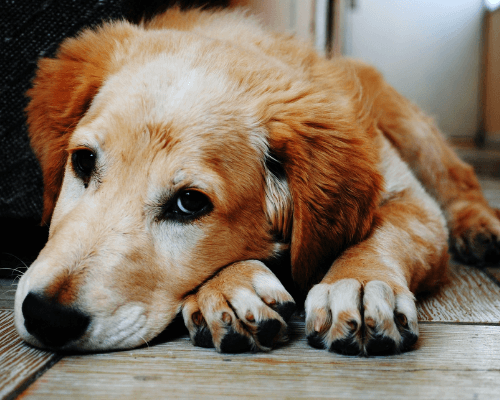
Just remember to keep an eye on the calories in the Provolone you use, and keep the amount you give to your dog to a minimum…
The reason why is because if your dog is eating too many calories each day he could be on a path towards obesity…
On top of that, you should consider low-fat Provolone cheese if you’re feeding it to your dog because if your pup eats fatty foods on a regular basis, he could be at risk for developing Pancreatitis in the future.
Is Provolone Cheese Good For Dogs?
If your pup is fed an appropriate amount of healthy dog food, Provolone cheese is unnecessary to your dog’s diet…
But even though that’s the case, there are still some benefits to feeding your dog Provolone…
For instance, by eating Provolone your dog will get extra protein. He or she will also get Vitamin A, B-complex vitamins, fatty acids, and calcium…
In addition to that, Provolone may serve as a good treat for your four-legged companion, especially if you want to change things up from the usual types of doggie treats and biscuits…
And because most dogs love eating Provolone cheese, it can also be used for things like potty training, sleep training, and as a reward for countless other things.
Again, all of this goes out the window if your dog is lactose intolerant or has a dairy allergy because those dogs should never be given cheese under any circumstances…
But if your dog tolerates Provolone cheese normally, it can be a healthy treat or reward if given in moderate amounts.
Are Any Other Cheeses Good For Dogs?
There are many types of cheese that are typically well-tolerated by dogs, and they can be used as healthy treats or rewards in much the same way as Provolone…
Cheeses that have low levels of lactose content and low levels of fat are best, and some of these cheeses include:
- Cottage Cheese
- Parmesan
- Swiss Cheese
- Pepper Jack
- Cheddar Cheese
Cheddar cheese and Swiss cheese are suitable for dogs because they don’t contain much lactose, and because of that, they are less likely to cause digestive issues…
Parmesan cheese also has a low lactose content, so it’s also a good option if you’re looking for a cheesy treat or reward too.
Lastly, Cottage Cheese is perhaps the best cheese a dog can have. First of all, it’s one of the healthiest cheese types because it’s low in fat and low in lactose content…
But at the same time, it’s high in calcium, and you can get reduced-fat versions which are even more ideal for giving to your pup.
What Types of Cheese Are Harmful For Dogs?
While Provolone cheese is safe for dogs, there are some types of cheese that you should never consider feeding to your dog. Some of these cheeses include:
- Herb cheeses
- Mozzarella cheese
- Feta cheese
- Blue cheese (Most Important Cheese To Avoid!)
You should avoid giving your dog any type of cheese that has seasonings or herbs mixed in. The reason why is because there are several ingredients that may be toxic to your dog…
For instance, garlic and onion are commonly mixed into these types of cheeses, and both foods can cause severe medical issues for your pup including anemia…
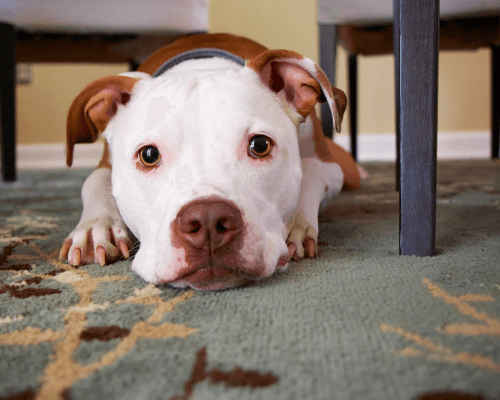
So avoid these types of cheeses because you don’t want to inadvertently give your dog a food that can be toxic to him…
In addition to that, cheeses like feta and mozzarella are high in lactose, so there’s a higher chance that they’ll upset your dog’s stomach…
And sometimes these types of cheese can have a high sodium level as well, which is something dogs should always avoid due to the possibility of getting salt poisoning…
Lastly, moldy cheeses like blue cheese should never be given to your dog…
Blue cheese contains fungus, which produces roquefortine C. Dogs are highly sensitive to this substance, and it can be life-threatening if they ingest it.
So under no circumstances should you allow your dog to eat Blue cheese.
Are There Reasons To Avoid Giving Your Dog Any Cheese?
Some cheeses can be harmless for dogs when given in moderation, and some can even pack in some benefits…
But even though that’s the case, there are several reasons why you might want to avoid giving your dog cheese altogether:
High Sodium Content…
A lot of cheese is high in salt, which consequently means they have too much sodium. If your dog ends up eating too much salt, he may be prone to sodium poisoning.
High Fat Content…
Most cheese is generally high in fat. If your dog is on a diet to cut down some pounds, giving him cheese will have the opposite effect…
In addition to that, the high content of fat also serves as a risk for dogs developing pancreatitis in the future.
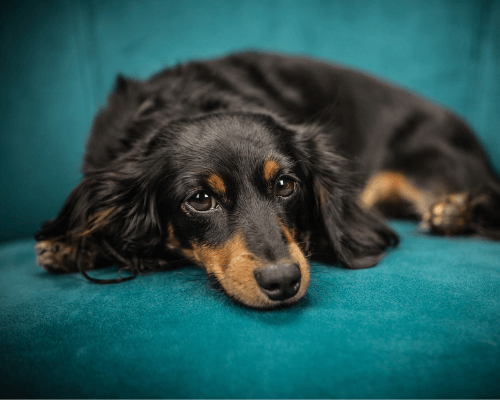
Toxic Ingredients…
Always read the ingredients label before giving cheese to your dog. If it contains anything from the Allium family, such as chives or garlic (which are common in cheeses), it’ll be toxic to all canines.
Dairy…
Dogs that are lactose intolerant or who have an allergy to dairy are actually more common than you might think…
And if you suspect that your dog might have a dairy allergy, you should contact a veterinarian to discuss the issue further…
>> Click Here To Chat With A Verified Vet In Minutes (24/7)!
To Wrap Up…
So in summary, dogs can eat Provolone cheese, and it can actually provide them with some nutrients and benefits if given in moderation…
Just remember to limit the amount of Provolone your dog is allowed to eat, make sure your dog isn’t lactose intolerant, and avoid any cheeses mixed with herbs and seasoning.


